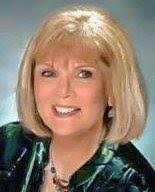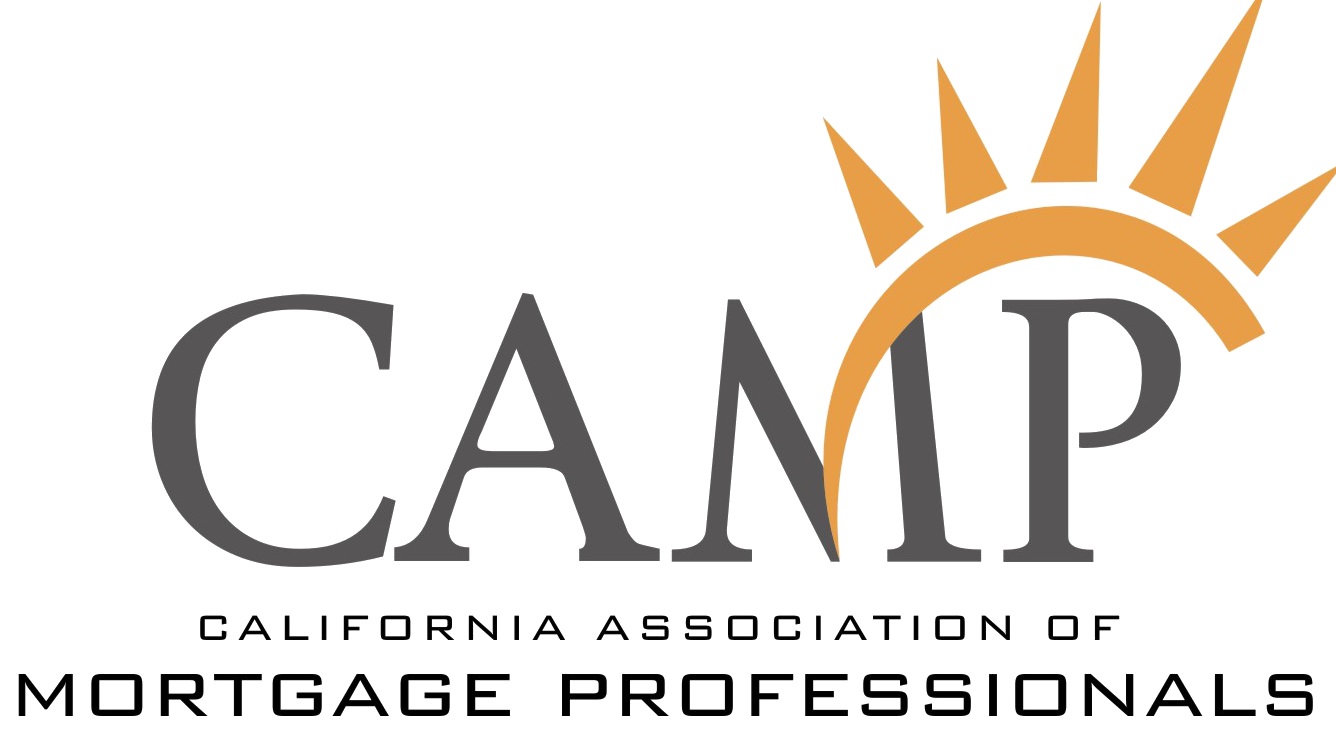Advertisement
Featured Industry Leader: Debbie Reinhardt, President, California Association of Mortgage Professionals Greater Sacramento Chapter

Debbie Reinhardt is mortgage planner and central branch manager at American Pacific Mortgage and president of the Greater Sacramento Chapter of the California Association of Mortgage Professionals (CAMP). National Mortgage Professional Magazine recently spoke with her regarding her work with the state’s trade association.
 How and why did you get involved with the California Association of Mortgage Professionals? Can you share the track within CAMP that led to the leadership role in your chapter?
How and why did you get involved with the California Association of Mortgage Professionals? Can you share the track within CAMP that led to the leadership role in your chapter?
I served as vice president of the California Association of Residential Lenders (CARL) in San Jose for two terms in the late 1980s, and then relocated to the Sacramento area. We had a very active and vibrant chapter of CARL then, but weren’t very involved in legislative issues … of course, we didn’t have too many legislative issues back then.
 How and why did you get involved with the California Association of Mortgage Professionals? Can you share the track within CAMP that led to the leadership role in your chapter?
How and why did you get involved with the California Association of Mortgage Professionals? Can you share the track within CAMP that led to the leadership role in your chapter?I served as vice president of the California Association of Residential Lenders (CARL) in San Jose for two terms in the late 1980s, and then relocated to the Sacramento area. We had a very active and vibrant chapter of CARL then, but weren’t very involved in legislative issues … of course, we didn’t have too many legislative issues back then.
I decided to become involved in CAMP in 2010 after Dodd-Frank was signed into law by President Obama, because of the unintended consequences on our ability to do business in the best interest of our clients. Unfortunately, when government steps in and tries to “fix” issues, not having a thorough understanding of the lending industry, it can and often does hamper and actually harm a buyer/borrower in a real estate transaction. I estimate that the additional costs incurred by lenders to satisfy the burdensome rules of Dodd-Frank have added an additional 0.50 percent to 0.75 percent to the interest rate for borrowers, while the benefits realized by borrowers are nebulous at best.
I joined the board of the Greater Sacramento Chapter of CAMP and served first as secretary, then chair of the Membership and Education Committees. I was asked to stand for president last year and agreed to run for the 2016-2017 year. We received the award for Large Chapter of the Year at the end of 2016.
 Why do you feel members of the mortgage profession in your state join CAMP?
Why do you feel members of the mortgage profession in your state join CAMP?
Some join because they realize that CAMP advocates on their behalf and for their borrowers, at the state level as well as in Washington, D.C., in conjunction with NAMB. We would be able to accomplish more if we had more members. It would give us a larger voice in legislation being drafted and/or considered because there is power in numbers when it comes to politics.
 Why do you feel members of the mortgage profession in your state join CAMP?
Why do you feel members of the mortgage profession in your state join CAMP?Some join because they realize that CAMP advocates on their behalf and for their borrowers, at the state level as well as in Washington, D.C., in conjunction with NAMB. We would be able to accomplish more if we had more members. It would give us a larger voice in legislation being drafted and/or considered because there is power in numbers when it comes to politics.
When I’ve participated in Legislative Days at the state capitol, one of the first questions I’m usually asked is: “How many members does your association have?” Considering there are several thousand loan officers in California, it is disappointing that CAMP’s membership statewide is only a little over 2,000 members. We plan to increase our membership by 10 percent each year.
I think most join to take advantage of the educational and networking events CAMP hosts monthly. I believe that we do a good job of educating our industry about changes that our members need to be aware of. We also have joint networking events with many professional real estate groups, such as the WCR (Women’s Council of Realtors), YPN (Young Professionals Network), NAHREP (National Association of Hispanic Real Estate Professionals), AREAA (Asian Real Estate Association of America), and the local real estate associations.
It is our goal to let more loan officers and mortgage brokers know about the additional benefits they can gain from membership, like discounted continuing education; Web site and CRM set up; Market Focus, an automated marketing service; Constant Contact, PRO mortgage origination software; a review management system; and UPS shipping services. Also included with membership is a free half-hour of legal advice every month from Herman Thordsen. A variety of medical and dental plans, plus a vision plan, are available through CAMP.
What role does CAMP play in the federal and state legislative and regulatory environments, and are there any items on the current agenda you would like to highlight?
CAMP is dedicated to watching the state laws that affect our industry, in conjunction with any federal laws that affect us. We attend Lobby Day in Washington, D.C. in April, followed by our own State Lobby Day in Sacramento in May. We take these opportunities to talk to legislators, and educate them to think about how their votes affect our industry’s ability to serve their constituents and perhaps how changes to proposed legislation might be beneficial. We advocate or oppose legislation based on how it might ultimately affect a homeowner or borrower. The legislation might deal with property taxes, interest deductibility, disclosure of loan terms such as with PACE or HERO loans, compliance issues, licensing requirements, flood insurance availability and cost, and any other issue that might affect our industry and thereby affect our clients.
We support HR3393—The Mortgage Fairness Act. This bill would make a technical correction to the Dodd-Frank Act, allowing low and moderate income borrowers and homebuyers some flexibility in the loans they choose so that they can have better cash flow at the time of closing.
What role does CAMP play in the federal and state legislative and regulatory environments, and are there any items on the current agenda you would like to highlight?
CAMP is dedicated to watching the state laws that affect our industry, in conjunction with any federal laws that affect us. We attend Lobby Day in Washington, D.C. in April, followed by our own State Lobby Day in Sacramento in May. We take these opportunities to talk to legislators, and educate them to think about how their votes affect our industry’s ability to serve their constituents and perhaps how changes to proposed legislation might be beneficial. We advocate or oppose legislation based on how it might ultimately affect a homeowner or borrower. The legislation might deal with property taxes, interest deductibility, disclosure of loan terms such as with PACE or HERO loans, compliance issues, licensing requirements, flood insurance availability and cost, and any other issue that might affect our industry and thereby affect our clients.
We support HR3393—The Mortgage Fairness Act. This bill would make a technical correction to the Dodd-Frank Act, allowing low and moderate income borrowers and homebuyers some flexibility in the loans they choose so that they can have better cash flow at the time of closing.
We also support licensing, continuing education and NMLS registration for all originators in order to increase professionalism in our industry. We are advocating support for including veterans as a protected class under ECOA, helping end discrimination against VA loans, and increasing lending limits (eligibility) for VA loans.
What do you see as your most significant accomplishments with the association?
We are systematizing the marketing of our educational and networking events to ensure timely and frequent notification of our members and future members to achieve maximum attendance and enlist new members. We are also in the process of revamping our Web site to make it more user-friendly for joining CAMP, registering for an event or learning about all the benefits the association has to offer and how you can become involved.
What do you see as your most significant accomplishments with the association?
We are systematizing the marketing of our educational and networking events to ensure timely and frequent notification of our members and future members to achieve maximum attendance and enlist new members. We are also in the process of revamping our Web site to make it more user-friendly for joining CAMP, registering for an event or learning about all the benefits the association has to offer and how you can become involved.
We increased our membership by more than 10 percent last year and intend to equal or surpass that increase this year. The officers and committee chairs being installed in July will have written descriptions of their duties and responsibilities, which will help them more successfully satisfy the requirements of their offices and committees.
What is the synergy between CAMP and NAMB?
NAMB is the good “Big Brother,” always watching out for all the states, as their representatives go to The Hill almost every day to advocate for legislation affecting all the states. California, as the most populous state, works hand in hand (conferences, Webinars, outreach programs) with NAMB and other interest groups for the betterment of our profession. Membership in NAMB keeps one abreast of developments on a national level, whereas CAMP focuses on the state level.
How would you define your state’s housing market?
I think inventory is a problem in almost all areas of California. Many homes are receiving multiple offers and selling very quickly at or above the listed price because there just aren’t that many homes for sale. Appraisers, having borne the brunt of some of the blame for the housing crisis, are not using time adjustments to increase value, so some appraisals are coming in below the agreed upon selling price. Frequently, this necessitates re-negotiating the sales price at or near the appraised value. This is having some effect on moderating price increases.
What is the synergy between CAMP and NAMB?
NAMB is the good “Big Brother,” always watching out for all the states, as their representatives go to The Hill almost every day to advocate for legislation affecting all the states. California, as the most populous state, works hand in hand (conferences, Webinars, outreach programs) with NAMB and other interest groups for the betterment of our profession. Membership in NAMB keeps one abreast of developments on a national level, whereas CAMP focuses on the state level.
How would you define your state’s housing market?
I think inventory is a problem in almost all areas of California. Many homes are receiving multiple offers and selling very quickly at or above the listed price because there just aren’t that many homes for sale. Appraisers, having borne the brunt of some of the blame for the housing crisis, are not using time adjustments to increase value, so some appraisals are coming in below the agreed upon selling price. Frequently, this necessitates re-negotiating the sales price at or near the appraised value. This is having some effect on moderating price increases.
Even in the new home arena, builders have been somewhat slow to re-engage so we are lagging quite a bit behind in the number of housing units needing to be built to satisfy the new household creation. This trend is continuing to increase prices, although not as rapidly as last year. As interest rates slowly rise, hopefully this will act as an additional damper on price increases or many first-time buyers may find themselves priced out of the market.
We still have some areas with some homes that are underwater due to maxing out their equity during the boom times, but in most areas values are back or close to where they were before the meltdown. We are anticipating another good year in the mortgage business, although more from purchase business as refinance volume has dropped significantly due to the slight increase in interest rates.
Phil Hall is managing editor of National Mortgage Professional Magazine. He may be reached by e-mail at [email protected].
About the author





